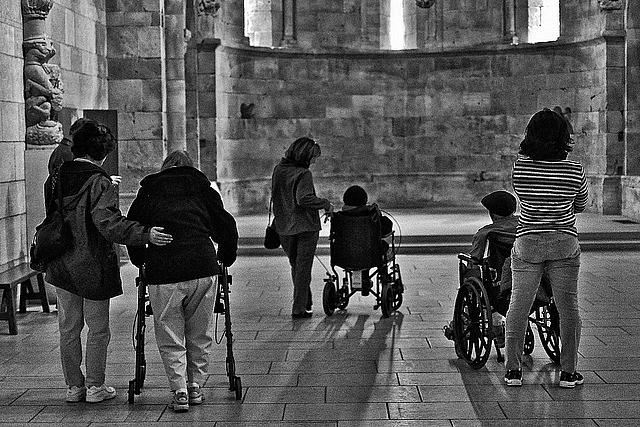California could change how nursing home residents receive antipsychotics

There’s a debate stirring over the use of antipsychotic drugs in nursing homes.
The California Culture Change Coalition is considering a recommendation that doctors be able to sign a consent form ostensibly on behalf of nursing home residents, allowing the doctors to give those patients antipsychotic drugs.
The Coalition is advising California’s 1,200 skilled-nursing facilities and the agencies that regulate them.
Members of the Coalition include patient advocates, members of nursing home lobby, and members of the California Hospital Association. The industry groups have been arguing for a form that does not require a patient or family member signature, the idea being that at times patients are so incapacitated that they can’t make effective decisions for themselves.
Marian Hollingsworth is a member of the coalition, and a veteran patient advocate who has been monitoring the debate. She thinks that the Coalition would be making a significant change in course with just this one form. She wrote me to say:
My father was the victim of antipsychotic drugs given in a nursing home without my knowledge or consent – so I have a personal interest in the outcome of the vote. … My concern is that this vote is being done quietly and secretly even though it will be affecting thousands of Californians. … The fact that the group is even entertaining the idea of a consent form without a signature is frightening.
The Coalition was scheduled to vote on the consent form in August but tabled the vote at the last minute because of the level of disagreement among the members.
The challenges are complex.
One question is whether to include dementia as a reason for giving residents antipsychotic drugs. Estimates show that more than half of all nursing home residents suffer from Alzheimer’s or some other form of dementia, and yet the antipsychotic drugs prescribed to combat these illnesses have proven to be harmful and even fatal. Read Risperdal’s black-box warning, for example.
The Centers for Medicaid and Medicare Services have been pushing to lower the rates of antipsychotic use in nursing homes. The agency challenged states to reduce antipsychotic use among elderly patients with dementia by 15 percent six months after the target was set in 2012, followed by another 15 percent in the second six-month period.
The project did not hit the full goal, but did succeed in lowering antipsychotic use a total of 15 percent. Also, it’s worth noting that this is based on self-reported numbers by the nursing homes.
Were California to allow dementia to be one of the reasons to give nursing home residents antipsychotics, it would run counter to the national trends and counter to the FDA recommendation against antipsychotics for elderly patients with dementia.
There also is a question of what current California law requires. The industry members of the coalition note that state law does require that consent be obtained or verified but does not specifically say a signature is required. A doctor, for example, could note in a patient’s records that the patient consented to be given antipsychotic drugs.
The group should receive high marks for making its deliberations accessible. It publishes its meeting minutes online shortly after the meetings are held. In the August 19 meeting minutes, the group noted:
It is clear in the regulations that the ‘prescriber’ has the responsibility to gain informed consent. It is not required by law that the patients or their representative sign the form, so this might be rejected by some groups. We can recommend it as a best practice.
One recommendation the coalition discussed was whether to recommend two different antipsychotic medication forms: one that would require the signature of the patient and the other that would not require a signature.
Hollingsworth called this suggestion “ludicrous.” She told me, “No one is going to get a signature if it's not required.”
I asked a few questions of Tony Chicotel, a staff attorney of California Advocates for Nursing Home Reform and the moderator for the group considering the proposal. He did not respond last week. I’ll let you know if I receive some answers.
Many of you have family members or friends in skilled-nursing facilities or have written about patient care in those settings. What do you think? Send me a note at askantidote [at] gmail.com or via Twitter @wheisel.
Photo by K. Kendall via Flickr.
